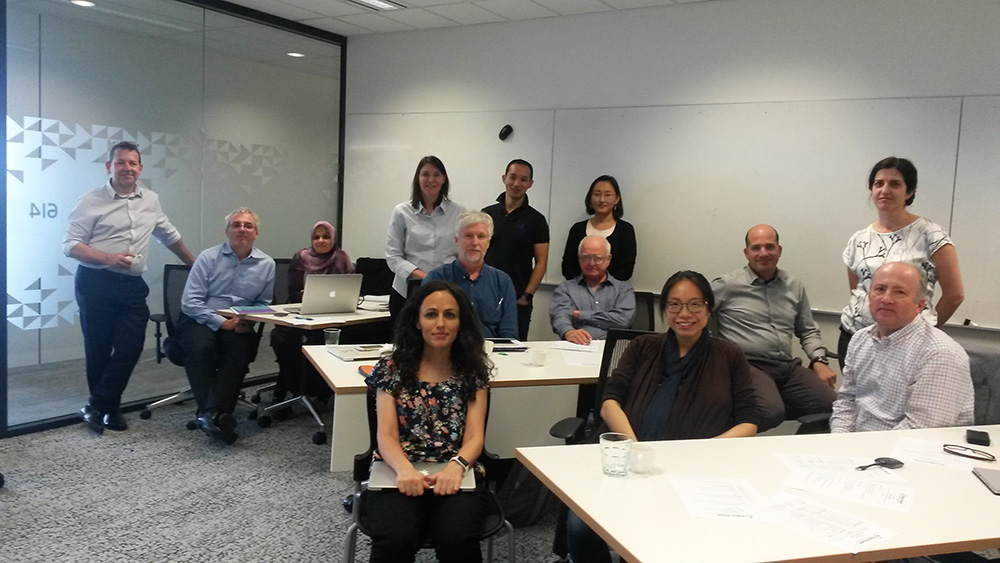Signaling the arrival of the digital revolution, artificial intelligence (AI) technologies are increasingly appearing within Australia’s health system. From diagnostics to clinical practice, digitisation of healthcare is promising to enhance delivery by supporting workforce capability, enabling better patient engagement and promoting health literacy and self-management of health conditions. Yet while our appetite for AI and its potential in being a safe, ethical, equitable and effective tool has improved with time, a lot remains unknown.
For Australia’s health system to benefit from the AI powered healthcare revolution, it needs more than new technology. Australia needs the research evidence, skills and workforce to translate these advances into effective working health services said Professor Enrico Coiera, Director of the Centre for Health Informatics at the Australian Institute of Health Innovation, and Professor of Health Informatics at Macquarie University.

Digital health can be defined as the use of information technology to improve the quality, safety and effectiveness of healthcare, with the intent of making it more efficient, accessible, and personalised. It includes AI, telemedicine, health apps, wearable devices, and electronic health records.
Professor Coiera explains that AI plays a crucial role in analysing medical data, predicting trends, assisting in diagnostic and therapeutic decisions, and personalising treatment plans.
'AI powered chatbots, for example, can help patients manage symptoms, while machine learning can develop algorithms to support doctors in detecting diseases earlier and more accurately. By enhancing decision making and streamlining processes, AI is helping to make healthcare more sustainable and person centred,' said Professor Coiera.
Trained in medicine with a computer science PhD in AI, Professor Coiera led the $2.5 million NHMRC Centre of Research Excellence in Digital Health (CREiDH) which united the major Australian centres of health informatics and digital health research. Working with healthcare data, AI tools and techniques, and together with partners, collaborators and frontline healthcare providers, CREiDH was at the forefront of addressing the key issues needed to drive the development of a digitally enabled healthcare system.
'Australia has the potential to be a global leader in AI driven healthcare, with its strong digital infrastructure, high-performing health system, and scientific expertise. Whilst some AI frameworks and roadmaps are in place, Australia remains unprepared to fully harness AI’s opportunities and address its challenges in healthcare,' said Professor Coiera.
Commencing in 2018, Professor Coiera led a team of chief investigators that were drawn from universities and organisations across the country with expertise in AI, digital health, evidence based medicine, patient safety, primary care, and infectious diseases. The impacts of CREiDH projects were varied yet equally powerful, producing new methods to automate systematic reviews powered by AI, launching the Australasian Health Informatics Fellowship Program and pioneering the development of consumer apps.

In 2024 the Productivity Commission estimated that adopting smart health services could save over $5 billion a year and ease pressure on Australia’s healthcare system.1 Through his extensive body of research, Professor Coiera understands more than anyone the potential of AI tools and how they can support an intelligent, adaptive healthcare system, paving the way for innovative approaches to patient care.
'AI offers immense benefits, and realising its full potential requires a well coordinated national strategy. To ensure Australia’s healthcare system remains sustainable, resilient, and capable of delivering high quality care, it must adapt to emerging challenges such as rising disease complexity, intensive treatments, climate change, and future pandemics,' said Professor Coiera.
Digital health and AI safety risks require governments to play a crucial role in helping the healthcare sector effectively integrate the technology. Facilitated by the partnerships created in the CREiDH, Professor Coiera founded the Australian Alliance for AI in Healthcare (AAAiH) in 2018. Its first priority was the development of the National Policy Roadmap for AI in Healthcare which establishes a foundation for embracing AI in healthcare and supports policymakers, industry leaders, and the broader community. It was developed in consultation with the Australian community and identifies gaps in Australia’s ability to translate AI into safe, effective clinical applications, offering guidance on workforce needs, industry capabilities, regulatory considerations, and AI safety.
'The roadmap has evolved through continued consumer and stakeholder engagement and policy discussions, with the aim of underpinning Australia’s potential to harness AI’s transformative potential in healthcare,' said Professor Coiera.
As we look towards embracing digital health, and the potential of AI tools, it is critical to understand that it can also disrupt industries, necessitating careful management. New roles will be created, some roles will be lost, and nearly all roles will be transformed away from how we currently define them.

Professor Coiera said from the perspective of patients, benefits like improved decision making are tempered by the introduction of new decision errors facilitated by poorly designed or calibrated technology.
'Our AI safety research examined machine learning risks using 6 years of FDA post market surveillance data. Findings highlighted the need for more systemic safety measures, focusing in particular on user interaction with AI driven devices,' said Professor Coiera.
Working together, AAAiH members are today supporting and accelerating the adoption of AI enabled healthcare in Australia, operating across areas including safety, quality and ethics, and workforce. Their AI Policy Roadmap has had a deep impact on the evolution of national policy and practice for AI safety, and for workforce development, and will continue to evolve. The internationally recognised work on AI safety that has emerged from CREiDH provides a foundation for further research and is shaping AI safety regulation. The revolution of a digitally powered national health system is only getting started.
1 Leveraging digital technology in healthcare - Commission Research Paper - Productivity Commission